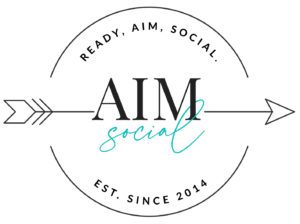Have you been thinking about writing a blog? Blogs are a great way to connect with your audience (and future clients), show off your expertise to possible clients, and also a great way to sprinkle your personality into your business. Are you feeling nervous to start? I have tips to help you dip your toes into blog writing. Grab a notebook and a pen. We’re going to cover everything from getting ideas to getting ready to post. You’re going to be a blog writing expert in no time.
Topics and Ideas
Before you start writing your blog it’s a good idea to have some topics ready. If you have topics you can skip this and move to the next section, but sometimes the topc is the hardest part. Ideas often flow to us naturally all the time, it’s just a matter of making sure we keep them to use as blog topics. You may have had a great idea months ago, but you’ve forgotten it.I’ve forgotten plenty of fantastic ideas. Forget no more! Keep either a notes app, list app, google doc, or the old fashioned pen and paper around and write down every idea that pops into your head as they flow around. You might be cooking dinner and think about a fantastic blog post, a customer might ask the perfect question to make a blog, or maybe a book sparked a creative idea. Keep these ideas on hand by keeping them in your preferred list for the next time you sit down to write a blog. Are ideas not coming to you naturally? You can utilize questions your audience have already asked you in emails, online, or in person. You can also use websites like answerthepublic or research your competition online (social media, blogs, or other their website) to see questions they’re answering.
Research It Out
Let’s make that topic list a blog! Before you start writing about your chosen first (or next) topic take some time to research deep enough to create a blog full of value. This can be done online, in books, through experience, and sometimes through interviews with experts on your topic. Research will help give your blog substance, knowledge, and help you write the most accurate blog. The level or amount of research will depend on the topic. A blog about your experience with cooking may not need as much research as a blog about the history of cooking. In another google doc, notes app, or notebook record notes from your research that you can access easily during your blog writing process. This will make writing your blog go as fast, smooth, and efficient.
Keywords for SEO
Another important thing to research before writing your blog is keywords for your industry. Keywords will make your blog searchable on search engines. You want your blog to have good SEO so that it helps bring your audience to you. Keywords are what your audience is googling about your niche and/or this specific blog topic. If you’re a yoga instructor you may want to include “stress relief”, “breath work”, or a specific yoga type you’re teaching. If you’re a dog trainer you might want to include “puppy training”, “house training”, or “anxious dog”. You can find keyword research tools (and research experts!) online to help you find keywords for your industry.
Ideal Audience
After your research, you’re ready to start writing your blog post. How do you write a blog though? First, make sure you’re writing with your audience sure in mind. This can look like using language appropriate for them, including pictures they’d enjoy, keeping paragraphs short to hold interest, and keeping the tone appropriate to your audiences needs. Writing towards your correct audience is important and can help you direct your blog to the right people. Is your writing going to have an informative tone? Is it meant to be friendly? Maybe you want to add humour? Make sure you know all this before you begin! Make sure to utilize the keywords you researched.
Structure
Another important part of writing your blog is its structure. Blogs should begin with an introduction, move towards short paragraphs(these may explain or solve something for your client/audience), then end with a conclusion that wraps it all up in a bow. It’s good to use short paragraphs to keep readers open to the topic and help them (and you) move efficiently and quickly through your chosen topic. You can alternatively structure it to whatever would fit your unique idea, but make sure to keep it flowing and efficient for your audience.
Are you feeling more ready to write your blog? Let’s check! You’ve got your ideas list, topics, research, you’re keeping your audience in mind, and you’ve got an idea of structure. You’re ready to wow the world with your first blog post. I can’t wait to read it and neither can your future audience.

